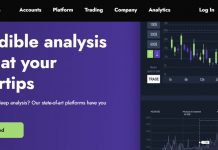FOMC members showing dovish tendencies
 It may be a little late now that the rate hike genie is out of the bottle but there are a few FOMC members now putting their heads above the parapet to express concerns about hiking rates in an environment where inflation is docile at best.
It may be a little late now that the rate hike genie is out of the bottle but there are a few FOMC members now putting their heads above the parapet to express concerns about hiking rates in an environment where inflation is docile at best.
Janet Yellen the outgoing Fed. Chair has been very cautious in her comments over the reason for hikes so far this year, knowing how long the market’s memory is when the Fed brings asset prices crashing down. Alan Greenspan’s “irrational exuberance” speech in 1997 is still remembered as the catalyst for the bursting of the dot com bubble.
It does insult the intelligence of the market when the Fed is hiking rates against such a benign background. Proactivity is fine as long as there is something to be proactive about. There are no assessments of the U.S. economy for 2018 that see inflation breaking much, if at all, above 2%.
The dollar has been buoyed by the prospect of a rate hike next month but a combination of Jerome Powell’s more cautious approach and stronger economic data from the Eurozone has pushed the dollar index back below 94.00 and the strong resistance seen at 95.00 now looks a distant memory.
If only they had waited!
 Where would Sterling be trading now if the MPC had held off on their rate hike earlier this month? The “dovish hike” and the Governors statement about just two hikes in the next three years coupled with concerns over business investment have pushed the pound lower in the intervening period.
Where would Sterling be trading now if the MPC had held off on their rate hike earlier this month? The “dovish hike” and the Governors statement about just two hikes in the next three years coupled with concerns over business investment have pushed the pound lower in the intervening period.
In his press conference, Mark Carney quoted the quarterly inflation report, saying that the outlook for inflation was little changed from the previous report in July. He also said that despite 3% being labelled as the probable high for inflation, it would break the 3% level in October.
Yesterday’s inflation report showed that inflation was unchanged at 3% in October and given the possible dampening effect of the rate hike, it is entirely plausible that 3% will be the short term high. The pound rose a little versus the dollar but fell against the stronger Euro following the data, but today’s employment report will be keenly anticipated, particularly the level of growth in the wages component.
The Brexit debate continues in Parliament with no significant developments but today there will be votes on amendments where the Government could come under pressure and dependent upon the action of a few rebels could be defeated particularly over the controversial inclusion of the date for leaving the EU enshrined in the Bill.
Error, group does not exist! Check your syntax! (ID: 4)
Strong Growth low inflation; The German dream comes true!
 Germany has reinstated itself as the Eurozone’s economic powerhouse with a set of data releases that will have Bundesbank President Jens Weidmann and Chancellor Angela Merkel believing in the economic miracle created by ECB President Mario Draghi.
Germany has reinstated itself as the Eurozone’s economic powerhouse with a set of data releases that will have Bundesbank President Jens Weidmann and Chancellor Angela Merkel believing in the economic miracle created by ECB President Mario Draghi.
Draghi has long believed that his job is to create an environment for low inflation growth for the entire region but yesterday’s inflation and growth data for Germany proved that accommodative monetary policy doesn’t necessarily have to lead to high inflation in a country where the economy is recovering quickly.
The German economy grew at 2.3% year on year in Q3 compared to just 0.8% a year earlier, and inflation was benign at 1.5% in October. Probably higher than the pan-Eurozone figure but of no concern to the Bundesbank. Weidmann would probably advocate a rate hike in the short term as a proactive measure particularly since the accommodation provided by the Asset Purchase Scheme will remain in place well into 2018 but such a move is without justification across the entire region where growth is at 2.5% with inflation likely to be no higher than 1.2% when it is released later today.
The common currency rose to 1.1815 overnight and has so far managed to hold onto those gains.








![Reltex Group Reviews: Explore business opportunities by Trading [reltexg.com]](https://comparic.com/wp-content/uploads/2023/12/image001-218x150.jpg)
![Mayrsson TG Reviews: Why Choose Crypto-Trading with Them? [mayrssontg.com]](https://comparic.com/wp-content/uploads/2023/12/image1-218x150.jpg)








